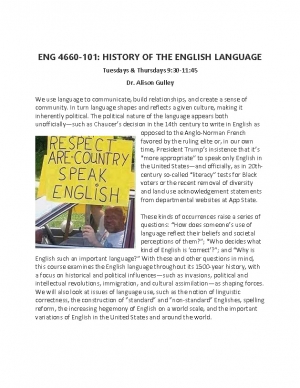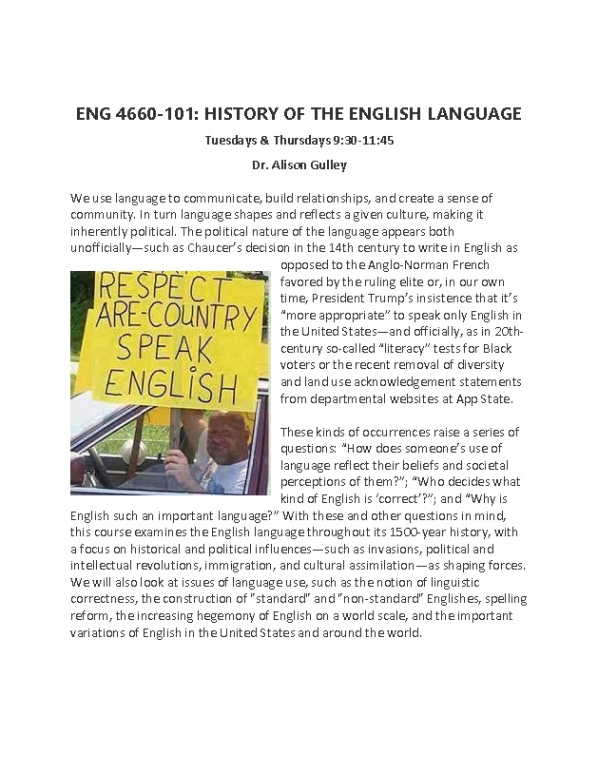We use language to communicate, build relationships, and create a sense of community. In turn language shapes and reflects a given culture, making it inherently political. The political nature of the language appears both unofficially—such as Chaucer’s decision in the 14th century to write in English as opposed to the Anglo-Norman French favored by the ruling elite or, in our own time, President Trump’s insistence that it’s “more appropriate” to speak only English in the United States—and officially, as in 20th-century so-called “literacy” tests for Black voters or the recent removal of diversity and land use acknowledgement statements from departmental websites at App State. These kinds of occurrences raise a series of questions: “How does someone’s use of language reflect their beliefs and societal perceptions of them?”; “Who decides what kind of English is ‘correct’?”; and “Why is English such an important language?” With these and other questions in mind, this course examines the English language throughout its 1500-year history, with a focus on historical and political influences—such as invasions, political and intellectual revolutions, immigration, and cultural assimilation—as shaping forces. We will also look at issues of language use, such as the notion of linguistic correctness, the construction of "standard" and "non-standard" Englishes, spelling reform, the increasing hegemony of English on a world scale, and the important variations of English in the United States and around the world.
Tues/Thurs 9:30-10:45 (in person)
Spring 2026
Dr. Alison Gulley

